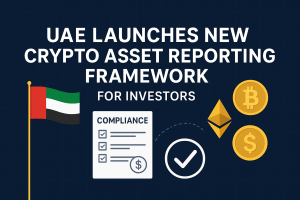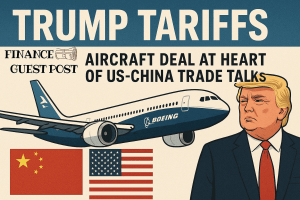Crypto License Dubai has been in great demand ever since they have been proclaimed the hub for virtual assets and innovative financial technologies. The establishment of the Virtual Assets Regulatory Authority (VARA) and its one-of-a-kind regulatory framework specifically for virtual assets is like the cherry on top.
VARA provides crypto license Dubai for multiple virtual assets-related activities. One of the most popular licenses due to its utility is the Broker-Dealer License.
What is a Broker-Dealer License?
A broker-dealer is a person or company that buys and sells virtual assets for its account or on behalf of others. A broker-dealer license enables a broker-dealer to carry out this function in a regulated and legal manner.
Broker-Dealer Services under VARA refers to any of the following –
- arranging orders for the purchase and sale of Virtual Assets between two Entities;
- soliciting or accepting orders for Virtual Assets, and accepting currency, or other Virtual Assets for such orders;
- facilitating the matching of transactions in Virtual Assets between buyers and sellers;
- entering into Virtual Asset transactions as a dealer on behalf of the Entity for its account;
- making a market in Virtual Assets using client assets; or
- providing placement, distribution, or other issuance* related services to clients issuing Virtual Assets.
This type of crypto license Dubai is the perfect Crypto OTC Business license.
What is Crypto OTC Desk?
Over-the-counter (OTC) trading desks allow two parties to trade without disclosing transaction information to the public, whether through an exchange order book or elsewhere.
The OTC desk operates as a matchmaker, facilitating large-scale transactions between buyers and sellers. Before proceeding with an OTC deal, the two parties must agree on a purchase price. The transactions might be crypto-to-crypto or fiat-to-crypto.
Transaction transparency differs across OTC desks and regular exchanges. A cryptocurrency exchange, such as Kraken or Binance, serves as a middleman between buyers and sellers. Transactions are carried out using an orderbook that everyone can view.
Conversely, crypto OTC trading is somewhat opaque because no one other than the transacting parties is aware of the price and amount of assets being exchanged. Furthermore, OTC deals are usually protected from larger market volatility that occurs on exchanges.
Why should Crypto OTC Desks obtain a Broker-Dealer License?
Crypto OTC (Over-the-Counter) desks play an important role in allowing large-volume cryptocurrency trading outside of regular exchanges for institutional customers and high-net-worth individuals. While not all jurisdictions require a broker-dealer license for OTC desks, getting one might provide many important benefits:
Regulatory conformity: As a licensed broker-dealer, the desk adheres to regulatory requirements and is in conformity with applicable laws, offering legal certainty and transparency to both its clients.
Credibility and Trust: Having a broker-dealer license increases OTC desks’ credibility and trustworthiness in the eyes of clients, counterparties, and regulators, indicating a dedication to professionalism, honesty, and regulatory compliance.
Access to Institutional Customers: Institutional customers, such as hedge funds, asset managers, and family offices, prefer to interact with licensed counterparties because it ensures regulatory monitoring and protects their interests.
Market Differentiation: A broker-dealer license distinguishes licensed OTC desks from unlicensed rivals, allowing them to stand out in the market and attract clients looking for reliable and trustworthy counterparties for their bitcoin transactions.
Risk Management: As a registered broker-dealer, you must adopt strong risk management policies and processes to protect client assets, prevent market abuse, and promote fair and orderly trading, all of which help to mitigate operational, legal, and reputational risks.
Access to Financial Services: Licensed broker-dealers are more likely to get banking services, which are necessary for enabling fiat-to-crypto transactions and providing liquidity to customers, hence improving the operating capacities and efficiency of OTC desks.
Expansion Opportunities: A broker-dealer license allows OTC desks to expand their business internationally by operating in jurisdictions that recognize the issuing authority’s regulatory standards, increasing market reach and business growth potential.
In conclusion, acquiring a crypto broker-dealer license in Dubai provides various benefits for OTC desks, such as regulatory compliance, credibility, access to institutional customers, risk management, market distinctiveness, access to financial services, and growth potential. OTC desks that operate as regulated businesses can improve transparency, integrity, and professionalism in the crypto OTC market, hence contributing to the general growth and maturation of the cryptocurrency ecosystem.








